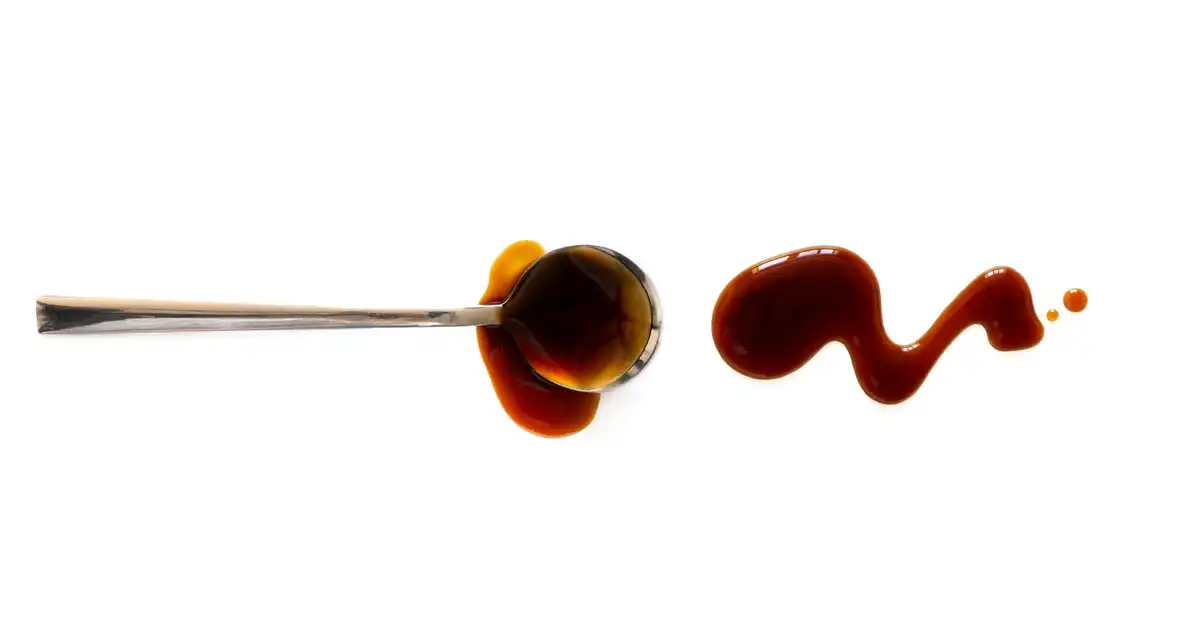
Is honey vegan? The answer will surprise you
Honey was originally advertised as a "miracle drug". However, do you know how honey is made? Please refer to this article.
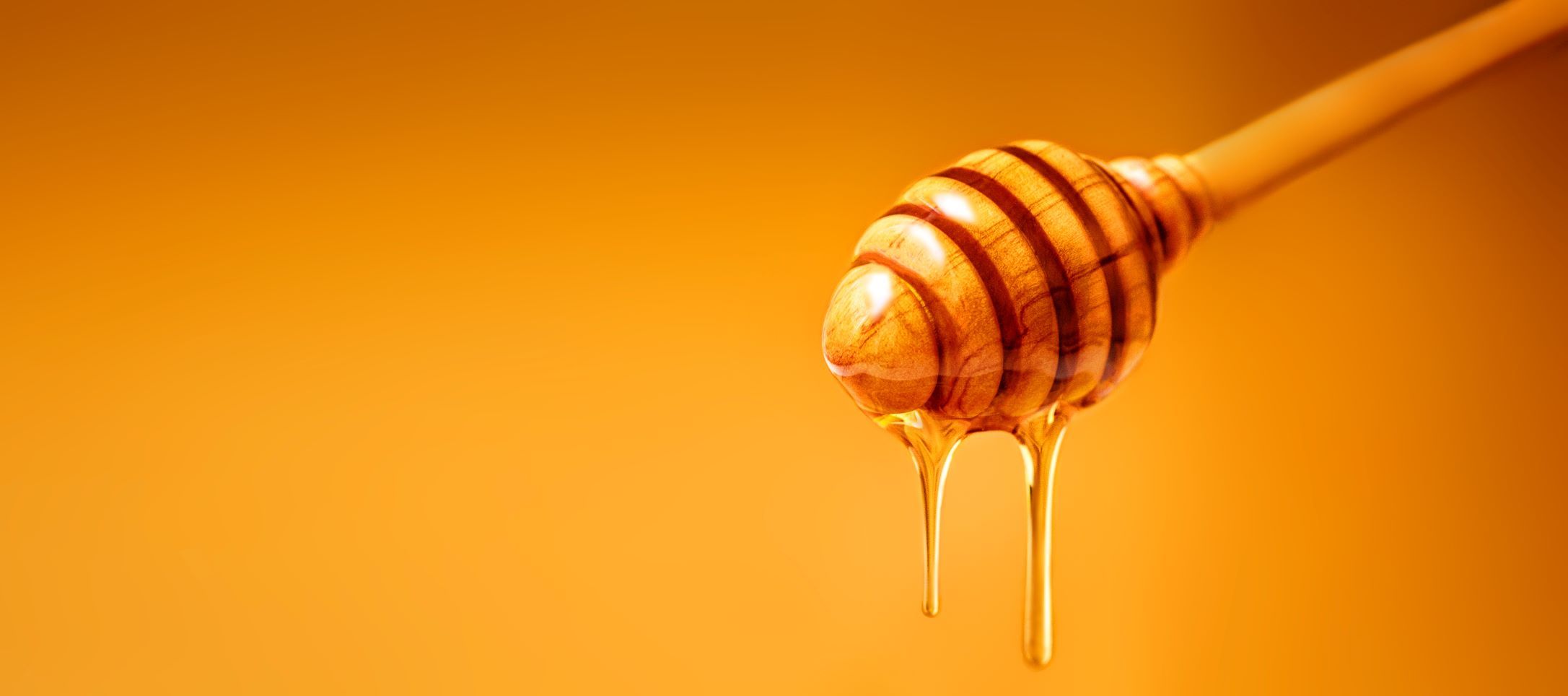
Bees are highly social and cooperative insects. They have a unique and complex form of communication based on sight, movement and scent that even scientists don't fully understand.
Bees communicate with each other through complex "dancing" movements. And research has shown that they are capable of abstract thinking, as well as distinguishing their family members from other bees in the hive.
But bees are perhaps best known for their honey.
Natural honey comes with unique properties. Honey shows up in everything from cakes to cheese to tea (honey was even once used as an ingredient in embalming fluid). Honey is linked to a range of health benefits, as it contains antioxidants that have been shown to help lower blood pressure.
But what exactly is honey? Are bees harmed to make honey? And is honey vegan?
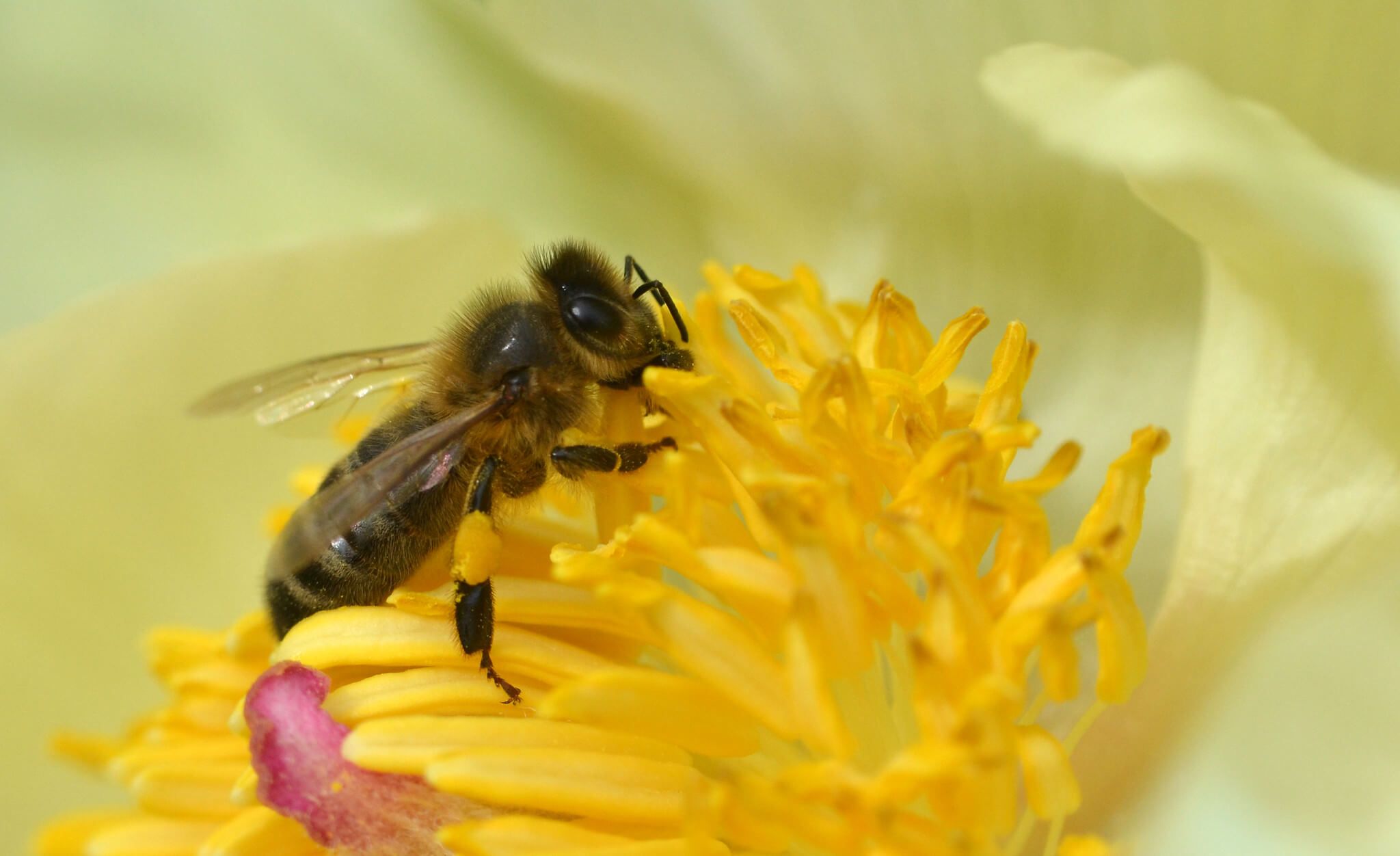
Because honey comes from animals, we do not consider it vegan. As the Vegan Society states, “honey is made for bees.” Like cow's milk and chicken eggs, naturally produced honey is not intended for human consumption.
Bees eat pollen and nectar, but honey is their only food source for the winter. Alison Benjamin is the co-author of A World Without Bees and Good Bee: A Celebration Of Bees And How To Save Them. "When there are no flowers or the weather is too cold, the bees starve," she explains.
And so, bees collect nectar from flowering plants to make honey, which is then stored inside the hive for rainy days. “Nectar is the starch that provides energy for bees' flight. Pollen provides protein so the larvae can develop into healthy adult bees,” Benjamin explains.
A honey bee will visit 1,500 flowers to collect enough nectar for their stomach. When they return to the hive, the bees secrete and chew the nectar, converting it from complex sugars to simple sugars.
This process is repeated thousands of times throughout the spring and summer. However, a bee only makes one-twelfth of a teaspoon of honey in their lifetime — and each spoonful is “basic” to their hive, according to The Vegan Society. (Notably, it takes bees to pollinate two million flowers – and about 55,000 bee miles – to produce a single ounce of honey.)
“Rather than an individual bee, the honey is used to feed the entire colony – made up of the queen and about 10,000 worker bees in the winter,” Benjamin explains.
How do bees help the environment?
Bees are a hard worker in our ecological system.
Benjamin said.
Bees are responsible for up to one-third of human food, as well as food for birds, other animals, and vegetation worldwide.
Indeed, bees pollinate all fruits including apples, cherries, blueberries and cranberries. Pollination of blueberries and cherries is 90% dependent on bees, and almonds require 100% pollination by honeybees at bloom time.
This is a controversial topic: According to Scientific American, millions of honey bees are transported across the United States to pollinate almond trees. Similar methods are applied to pollinate avocados.
Benjamin warns that forcing bees to collect nectar from just one crop deprives them of the much more diverse and nutritious diet provided by wild habitats." Animal transfers can also cause causing food shortages in some areas.
A world without bees
More than just their impact on food, pollinators play an important role everywhere we look. “When we look at the benefits of pollinators to our natural world, the numbers are staggering,” says the Xerces Society, an environmental nonprofit. Pollinators keep plant communities healthy and productive… Taking a walk in nature or strolling through a garden would be a very different experience without pollinators.”
Professor Johanne Brunet, University of Wisconsin-Madison, also has a similar opinion. “Humans depend on plants and plants depend on pollinators,” Brunet said. "Balance must be maintained to sustain life on earth and protect human survival and health."
According to Statista, there are more than 20,000 species of bees and more than 90 million beehives around the world. But bee populations are in decline.
Of the 2,000 wild bee species in Europe, one in 10 are facing extinction, The Soil Association said. And globally, it is estimated that one in six bee species are regionally extinct, while more than 40% are at risk of extinction.
Pesticides are one of the factors responsible for this decline; Neonicotinoid pesticides are believed to be the leading cause of declining bee populations. In fact, research shows that chemical can be found inside honey itself.
Bees die en masse
While investigating his book, Benjamin discovered millions of honey bees had died from pesticides, parasites, and poor nutrition. This is partly due to human farming methods. “In the US, large-scale beekeepers typically report at least one-third of their bee colonies dying each year,” Benjamin notes.
“Lack of nutritious food is also a problem because bees will be transported from one bee colony to another for pollination – often thousands of miles apart in the US – but this does not provide the bees with a healthy diet. eat healthy, so this again will also make them weaker. . ”
Typically, beekeepers replace honey taken from the hive with a substitute such as sugar. This causes honey bees to work too hard to replace the missing honey. Meanwhile, sugar substitutes lack the nutrients, fats and vitamins in honey that bees need to stay healthy.
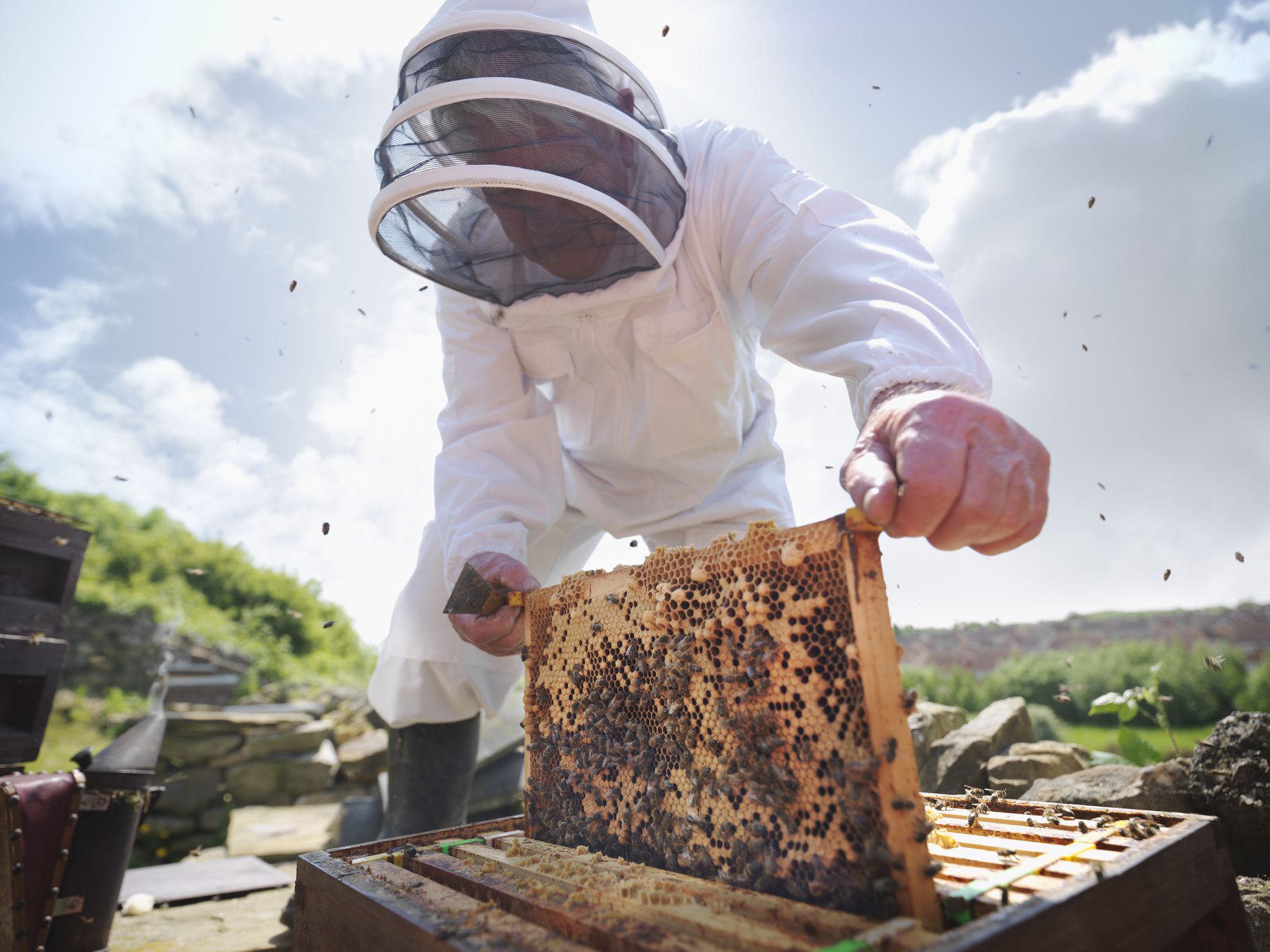
Is honey production cruel?
PETA UK director Elisa Allen claims that the honey industry “abuses bees for profit”.
“Bees are genetically manipulated, their hives are smoked, and their wings and legs are torn off when pushed out of the hive, all so humans can steal their honey - that's nature. The materials and their life's work belong to the bees, not us,” Allen said.
"Many beekeepers use inhumane methods to ensure their own safety and increase productivity, including clipping the queen bee's wings so she cannot leave the colony and killing male bees to harvest semen for fertilization. sperm for the queen bee."
Royal jelly, also known as “jelly,” is a gelatine-like substance used in cosmetics. It is harvested from the queen bee's glands. Benjamin says it is the "most cruelly produced" product because it can only be produced on an industrial scale by bees "who are treated purely as royal jelly machines."
11 vegan alternatives to honey
There are many natural honey substitutes on the market. You can also buy vegan honey products online. In addition, Living Vegan would also like to suggest to you 11 honey-like products that you can use for your daily meals.
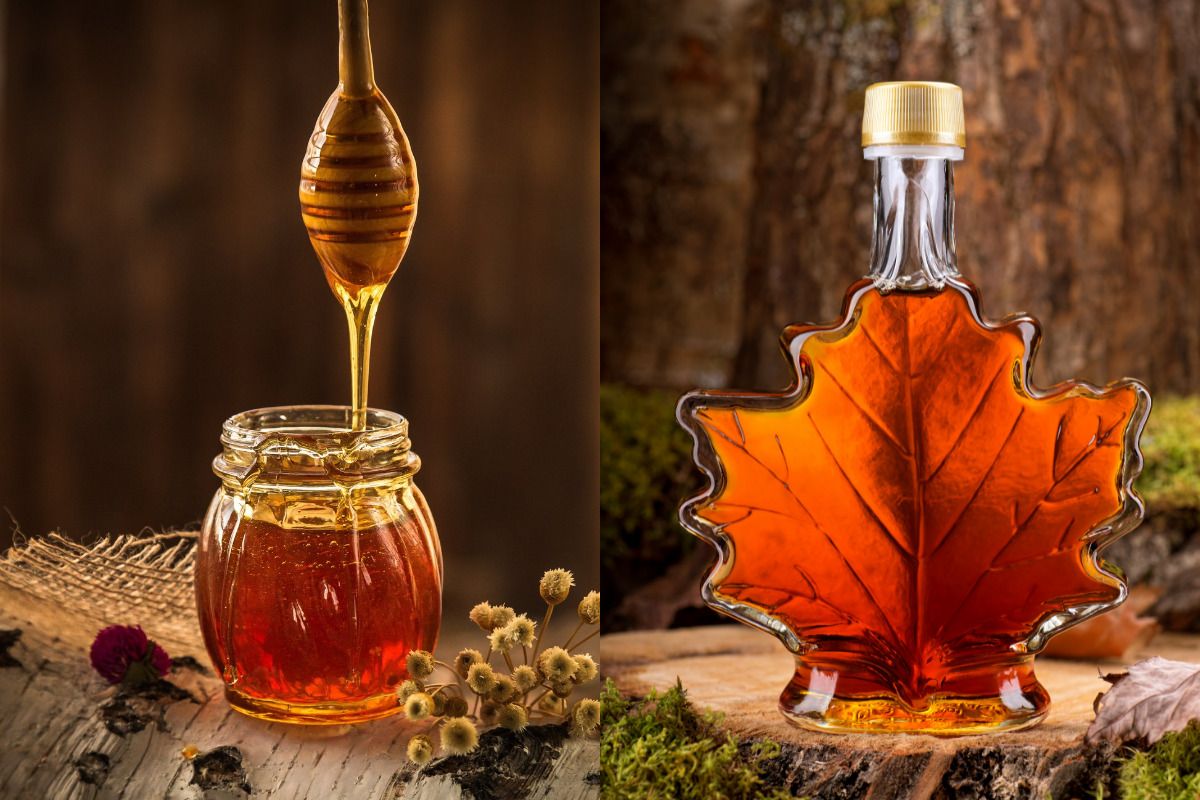
1. Maple syrup
Harvested from maple trees, maple syrup is a fun and delicious treat. You can top toast, top pancakes or add to your favorite sauce for a deliciously sweet taste.
2. Agave nectar
Agave nectar comes from the agave plant, which is a cactus native to Mexico. This is a neutral flavor and resembles honey in many recipes. The syrup contains less glucose than refined sugar and is the perfect way to sweeten a cup of tea.
3. Rice syrup
A sticky and sweet natural sweetener made from whole brown rice, rice syrup is a staple food. This flavor may be too strong for tea or pancakes, but use it as you would honey in recipes.
4. Malted barley
Like brown rice syrup, barley malt is a concentrated sweetener from whole grain barley. This is also a great spice in grilled dishes. 5. Coconut nectar
This nectar comes from the sap of the coconut tree. Coconut nectar is considered purer than coconut sugar. You can add coconut nectar to dried fruit, dates and oats to create these vegan shredded coconut cakes.
![banh hoa dua.jpg]https://cms.vive.org.vn/uploads/banh_hoa_dua_52ff40a027.jpg)
6. Date syrup
Dates are often used in cakes and sweets. Additionally, they can be made into syrup by soaking, boiling and sieving.
7. Molasses
As a naturally rich source of plant-based iron, molasses has an exceptionally sweet taste. Molasses has a quite strong flavor, and is very different from other syrups. Use in your favorite baking recipes, but ideally halve it with another, more neutral sweetener like rice syrup or agave nectar.
8. Sago syrup
Sorghum syrup is made from the herbaceous sorghum plant and resembles molasses. It can be used to add sweetness to baked goods.
9. Vegan Honea
Vegan honey is an alternative that often contains prebiotics, which can help improve gut health Honea is often made from natural flavorings including apple juice, lemon juice and molasses. Some vegan honea products – such as those developed by Plant-Based Artisan – are made with prebiotics shown to support gut health.
ten. Fruit syrup
Concentrated fruit syrup can replace honey in baking recipes. Or, mix with maple leaves to spread on your pancakes, waffles or French toast.
11. Raw sugar
Swapping liquid honey for raw sugar in baked goods takes a little fuss, but it can be done. You usually just need to increase your fluid intake.

